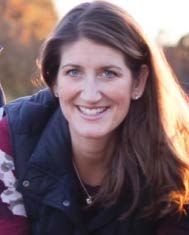When I read more of Martin Seligman's research, I not only saw his research as helping Sheryl Sandberg process her husband's death, but I found this helpful on how I worked through my son's diagnosis.
I was reading an article on businessinsider.com about Sheryl Sandberg who is the COO for Facebook. Her husband, Dave Goldberg, died suddenly about two years ago and, since then, she has shared with others how she processed his death. Sandberg cited research from Martin Seligman that helped her cope with her family's terrible loss.
When I read more of Martin Seligman's research, I not only saw his research as helping Sheryl Sandberg process her husband's death, but I found this helpful on how I worked through my son's diagnosis. As I sat there on the couch, perplexed as to why this would help me with a diagnosis, similar to helping a spouse who lost a partner, I remembered what was told to me on the day of my son's diagnosis. The pediatric team said, "Think of this diagnosis as a this diagnosis as a death. Your child is not going to be what you thought he was going to be." At the time, I was angry at this comment of thinking of autism as a death sentence. Who could look at Broden and see him as a loss? After reading about the three P's, I slowly nodded my head because I finally understood. It wasn't Broden that was the loss, because I still love him as much as I loved him when we walked into the pediatric clinic almost decade ago. The difficulty would be in how we process the change in expectations and how we live our lives. Again, Broden's diagnosis had absolutely nothing to do with Broden's worth, the difficulty was in how we, as a family, were going to live our lives with the diagnosis. Martin Seligman is a professor at the University of Pennsylvania. Through research, he has determined that we deal with experiences in our lives through the three P's: personalization, pervasiveness, and permanence.
Personalization of the event is the fault or sense of guilt we feel due to the outcome. In my book, "Giving a Voice to the Silent Many," I talk about the guilt I felt when Broden was diagnosed with autism. This affected my marriage, how I parented our two children, and even how I treated my friends around me. I thought that since I carried our son in my body, obviously I was the one who was at fault. I eventually had to let go of that sense of guilt and realize that I may never know what caused his autism.
The second P is THREE P'S: I watched Mark, the boys and my parents playing in the waves. That was the moment I wanted to remember. I knew that life would continue and there could be happy and joyous moments living with autism. pervasiveness. Will the event or diagnosis affect the rest of our lives? Basically, will this experience or diagnosis be so profound that we will never find our sense of normalcy?
Last week, my family spent the week at Seacrest Beach to celebrate the Fourth of July because my husband was able to take a week of leave since he was changing jobs. I remember sitting in a low chair on the beach at the edge of the water line so I could feel the waves brush up against my legs. About 10 feet in front of me I watched Mark, the boys and my parents playing in the waves. After so many trips to the beach, Broden is now independently jumping up over the waves and trusts his life vest to keep him buoyant. I sat back watching him smile and laugh and then watch the rest of my family smile and laugh with him. That was the moment I wanted to remember. I knew that life would and will continue and there could be happy and joyous moments living with autism.
The last P discussed was permanence, meaning how long the feelings of hopelessness, sadness, and grief would last after the experience of loss or, in our case, the diagnosis. After I thought about the definition of permanence, I realized that Broden's diagnosis will always be there, but more and more I feel that autism has forced our family to grow in ways I could never imagine. My level of empathy towards families who are raising children with disabilities is more than it has ever been and I try harder to find some kind of goodness in everything.
If life were easy, then there would not be as many opportunities for growth. Sure, hardship is extremely painful and no one wishes for it, but if hardship or loss occurs there is hope for lessons to be learned that you could not have ever imagined learning. Autism was something that our family did not see on the horizon when Broden was born, but he has not only changed my life for the better, but that of so many others as well. •
PUZZLES & CAMOShelley Huhtanen is an Army wife with two children, one with autism, whose husband is currently stationed at Fort Benning, GA. She is an autism advocate and currently the parent liaison for the Academy for Exceptional Learners.

THREE P'S: I watched Mark, the boys and my parents playing in the waves. That was the moment I wanted to remember. I knew that life would continue and there could be happy and joyous moments living with autism.
